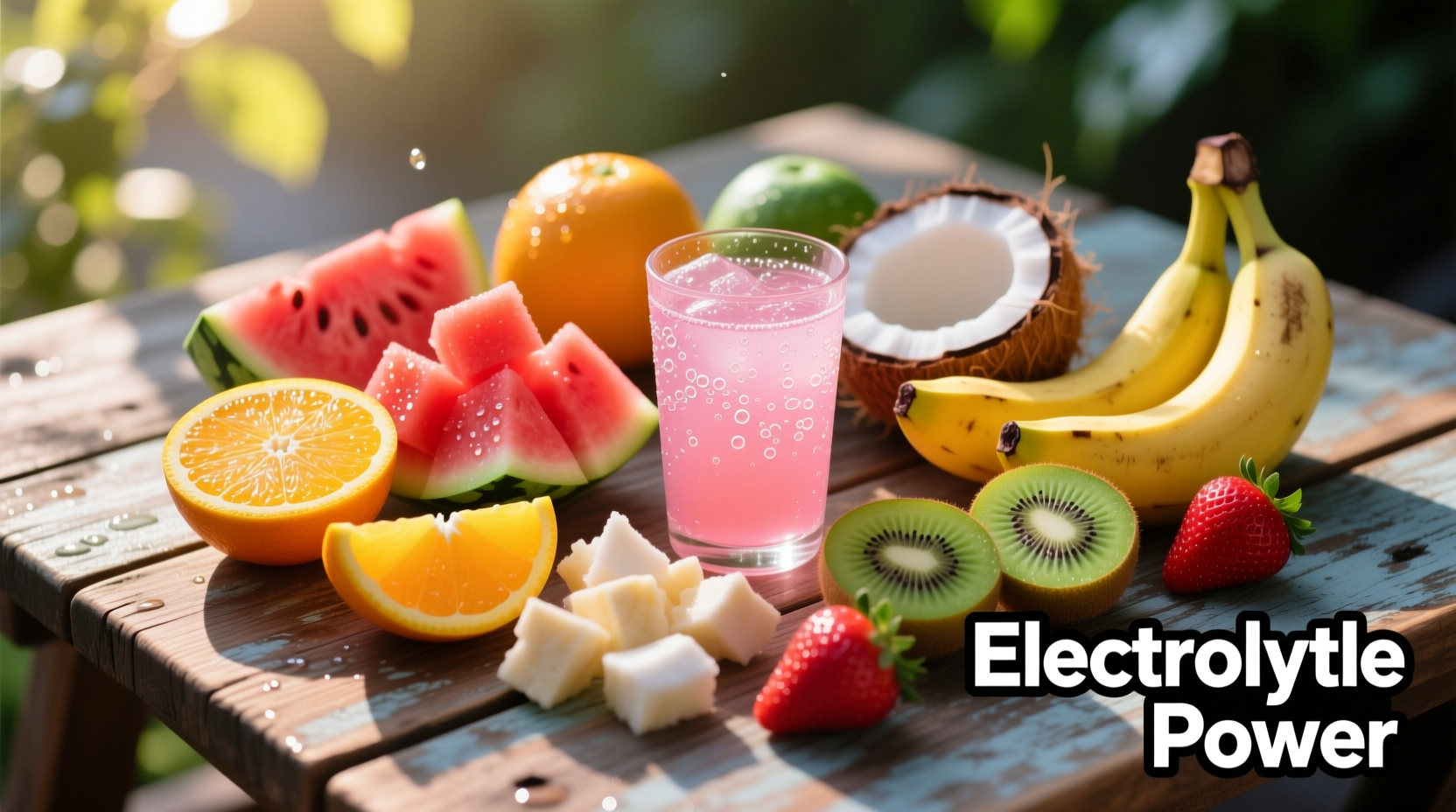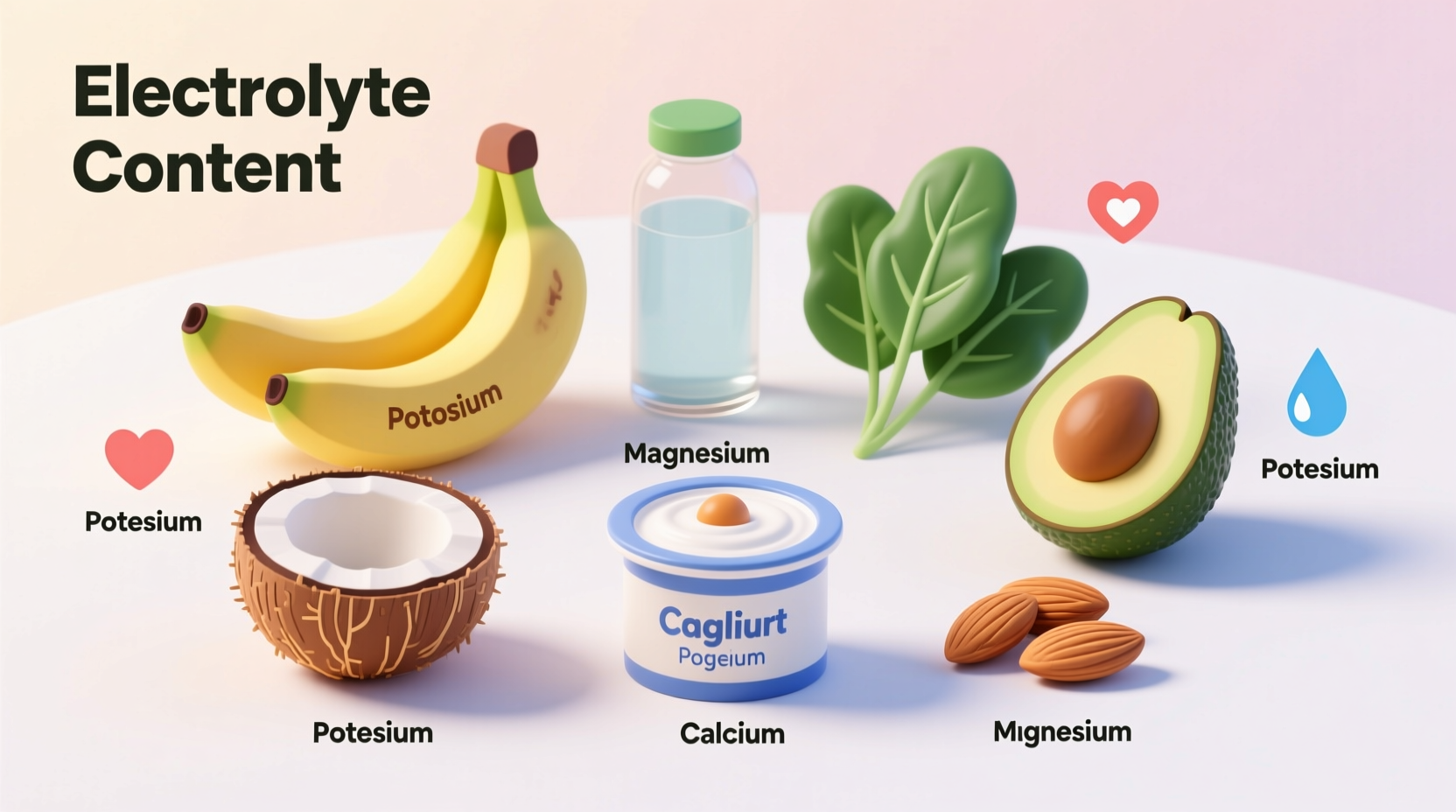Top natural electrolyte-rich foods include bananas, coconut water, spinach, almonds, avocados, sweet potatoes, and dairy products. These provide essential potassium, sodium, magnesium, and calcium without artificial additives—perfect for hydration, recovery, and maintaining optimal bodily functions.
When your body loses fluids through sweat, illness, or exercise, replenishing electrolytes becomes critical for proper nerve function, muscle contractions, and hydration balance. While sports drinks dominate the market, nature offers superior whole-food alternatives that deliver electrolytes alongside fiber, vitamins, and antioxidants—without the sugar crashes or artificial ingredients.
Why Your Body Needs Electrolytes Daily
Electrolytes—minerals like potassium, sodium, magnesium, and calcium—carry electrical charges that power your nervous system, regulate heartbeat, and maintain fluid balance. Even mild deficiencies cause fatigue, muscle cramps, and brain fog. Athletes, frequent travelers, and those recovering from illness particularly benefit from consistent electrolyte intake through food sources.
Unlike processed electrolyte drinks containing 20-30g of sugar per serving, whole foods provide balanced mineral profiles with natural co-factors that enhance absorption. Research from the National Institutes of Health confirms that dietary electrolytes from whole foods demonstrate superior bioavailability compared to isolated supplements.
Natural Electrolyte Powerhouses by Mineral Type
Potassium Powerhouses
Potassium regulates blood pressure and counters sodium's effects. The American Heart Association recommends 2,600-3,400mg daily, yet 98% of Americans fall short. These foods deliver exceptional potassium:
- Bananas (422mg per medium fruit): Ideal post-workout but balance with protein for sustained energy
- Spinach (839mg per cooked cup): Cooked delivers 3x more potassium than raw
- Sweet potatoes (542mg per medium potato): Skin-on maximizes fiber and mineral retention
- Avocados (708mg per whole fruit): Healthy fats boost electrolyte absorption
Sodium Sources Beyond the Shaker
While table salt provides sodium, these whole-food options offer sodium plus complementary nutrients:
- Celery (80mg per cup): Natural sodium-potassium ratio supports hydration
- Pickles (570-1,200mg per spear): Fermented versions add gut-friendly probiotics
- Seaweed snacks (Varies by type): Nori provides 2,000mg sodium per sheet plus iodine
Magnesium-Rich Options
Magnesium deficiency affects 50% of Americans according to NIH data. These foods boost this crucial mineral:
- Almonds (80mg per ounce): Pair with vitamin C foods for better absorption
- Black beans (120mg per cup): Fiber content prevents blood sugar spikes
- Dark chocolate (64mg per ounce): Choose 70%+ cacao for maximum benefits
| Food | Key Electrolytes | Amount Per Serving | Best For |
|---|---|---|---|
| Coconut water | Potassium, sodium | 600mg potassium, 252mg sodium per cup | Post-workout recovery |
| Spinach (cooked) | Potassium, magnesium | 839mg potassium, 157mg magnesium per cup | Daily mineral foundation |
| Plain yogurt | Calcium, potassium | 296mg calcium, 380mg potassium per cup | Morning hydration boost |
| Watermelon | Potassium, magnesium | 170mg potassium, 15mg magnesium per cup | Summer hydration |
When Food Sources Outperform Supplements
While electrolyte tablets have their place during endurance events, whole foods provide critical context that isolated supplements lack. The Harvard T.H. Chan School of Public Health notes that food-based electrolytes come with natural co-factors like fiber and phytonutrients that enhance mineral utilization and prevent imbalances.
Context boundaries matter: People with kidney disease must monitor potassium intake, while those with hypertension should prioritize potassium-rich foods over sodium sources. Always consult your physician before making significant dietary changes if you have underlying health conditions.
Practical Integration Strategies
Maximize electrolyte benefits with these chef-tested techniques:
- Morning hydration boost: Blend spinach, banana, almond milk, and chia seeds for 1,200mg potassium
- Post-workout recovery: Pair sweet potato with salmon for potassium-magnesium synergy
- Travel hydration: Pack individual servings of olives and almonds as airport-friendly electrolyte snacks
Professional chefs like those at Mayo Clinic's integrative medicine program emphasize that cooking methods affect electrolyte retention. Steaming preserves water-soluble minerals better than boiling, while roasting concentrates mineral density in vegetables like tomatoes and mushrooms.

Special Considerations for Active Lifestyles
Athletes require strategic electrolyte timing. Research in the Journal of the International Society of Sports Nutrition shows that consuming potassium-rich foods 2-3 hours before exercise improves endurance, while sodium-dense options during prolonged activity prevent cramping. For everyday hydration, focus on consistent intake throughout the day rather than reactive supplementation.
During illness, electrolyte needs increase dramatically. The CDC recommends oral rehydration solutions containing specific electrolyte ratios, but when commercial options aren't available, a homemade solution of water, banana, and a pinch of salt provides effective emergency hydration.











 浙公网安备
33010002000092号
浙公网安备
33010002000092号 浙B2-20120091-4
浙B2-20120091-4